Mitsubishi Eclipse Cross vs VW Caddy Compact Van – Which car suits you better?
Everyday use, family trips or long-distance drives – here’s where the differences show.
Discover whether Mitsubishi Eclipse Cross or VW Caddy Compact Van fits your lifestyle better.
Costs and Efficiency:
Price and efficiency are often the first things buyers look at. Here it becomes clear which model has the long-term edge – whether at the pump, the plug, or in purchase price.
VW Caddy Compact Van has a distinct advantage in terms of price – it starts at 25800 £, while the Mitsubishi Eclipse Cross costs 36000 £. That’s a price difference of around 10170 £.
Fuel consumption also shows a difference: VW Caddy Compact Van manages with 0.50 L and is therefore convincingly more efficient than the Mitsubishi Eclipse Cross with 2 L. The difference is about 1.50 L per 100 km.
As for range, the VW Caddy Compact Van performs decisively better – achieving up to 120 km, about 75 km more than the Mitsubishi Eclipse Cross.
Engine and Performance:
Power, torque and acceleration are the classic benchmarks for car enthusiasts – and here, some clear differences start to show.
When it comes to engine power, the Mitsubishi Eclipse Cross has a distinct edge – offering 188 HP compared to 150 HP. That’s roughly 38 HP more horsepower.
In terms of top speed, the VW Caddy Compact Van performs somewhat better – reaching 186 km/h, while the Mitsubishi Eclipse Cross tops out at 162 km/h. The difference is around 24 km/h.
Space and Everyday Use:
Cabin size, boot volume and payload all play a role in everyday practicality. Here, comfort and flexibility make the difference.
Seats: Mitsubishi Eclipse Cross offers significantly more seating capacity – 5 vs 2.
In curb weight, VW Caddy Compact Van is clearly perceptible lighter – 1442 kg compared to 1985 kg. The difference is around 543 kg.
In maximum load capacity, the VW Caddy Compact Van performs convincingly better – up to 3700 L, which is about 2592 L more than the Mitsubishi Eclipse Cross.
When it comes to payload, VW Caddy Compact Van clearly takes the win – 759 kg compared to 440 kg. That’s a difference of about 319 kg.
Who wins the race?
The VW Caddy Compact Van proves to be wins the duel decisively and therefore becomes our DriveDuel Champion!
VW Caddy Compact Van is the better all-rounder in this comparison.
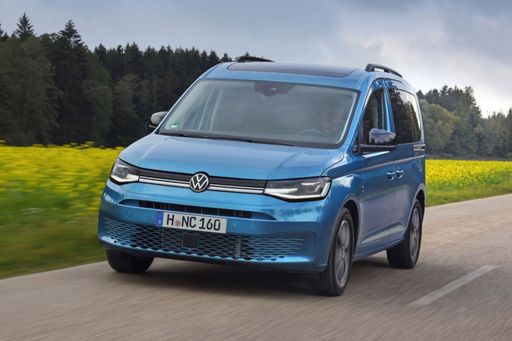
VW Caddy Compact Van
Mitsubishi Eclipse Cross
The Mitsubishi Eclipse Cross presents a sleek fusion of dynamic design and versatile functionality, perfect for urban adventures and weekend getaways alike. Its elegant lines and bold front grille make a strong statement on the road, while its well-appointed interior offers a comfortable and connected driving experience. With advanced safety features and intuitive technology, the Eclipse Cross ensures drivers feel secure and in control, whether navigating city streets or scenic routes.
details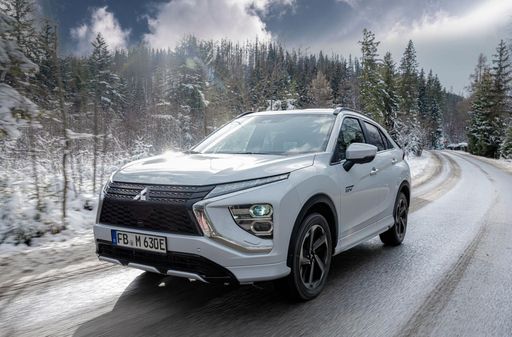 @ Mitsubishi Motos
@ Mitsubishi Motos
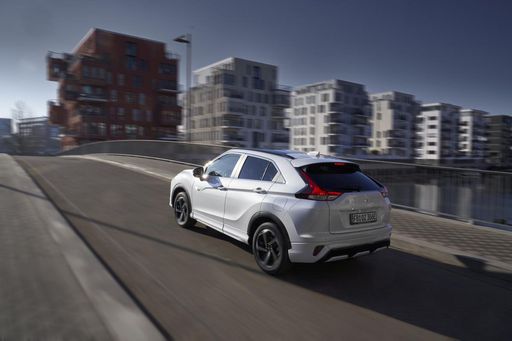 @ Mitsubishi Motos
@ Mitsubishi Motos
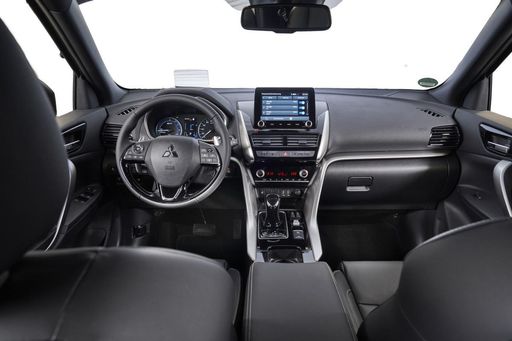 @ Mitsubishi Motos
@ Mitsubishi Motos
VW Caddy Compact Van
The VW Caddy small van is a versatile option for those seeking a practical and efficient transporter. With its sleek design and innovative features, it caters well to both business needs and everyday convenience. The interior is thoughtfully designed, offering comfort and ample space for cargo or passengers, making it a reliable choice for various tasks.
details @ vwpress
@ vwpress
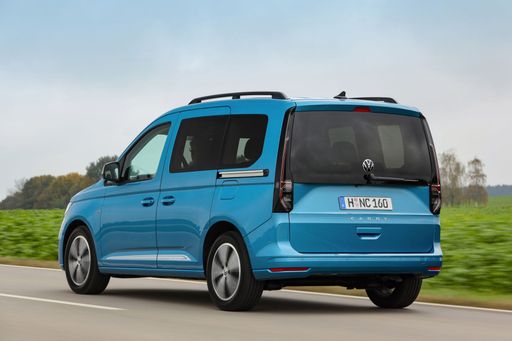 @ vwpress
@ vwpress
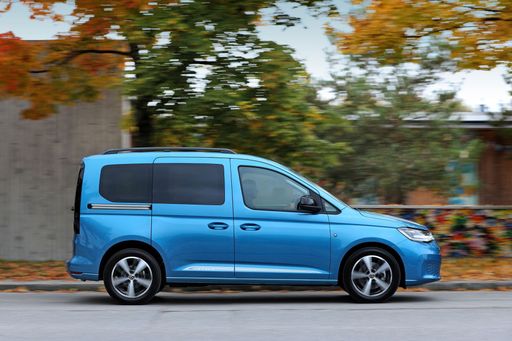 @ vwpress
@ vwpress
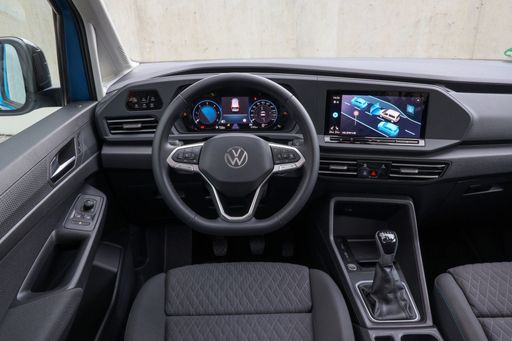 @ vwpress
@ vwpress

|

|
|
|
|
Costs and Consumption |
|
|---|---|
|
Price
36000 - 42000 £
|
Price
25800 - 42300 £
|
|
Consumption L/100km
2 L
|
Consumption L/100km
0.5 - 6.8 L
|
|
Consumption kWh/100km
-
|
Consumption kWh/100km
-
|
|
Electric Range
45 km
|
Electric Range
117 - 120 km
|
|
Battery Capacity
-
|
Battery Capacity
19.70 kWh
|
|
co2
46 g/km
|
co2
11 - 154 g/km
|
|
Fuel tank capacity
43 L
|
Fuel tank capacity
50 L
|
Dimensions and Body |
|
|---|---|
|
Body Type
SUV
|
Body Type
Cargo Van
|
|
Seats
5
|
Seats
2
|
|
Doors
5
|
Doors
4 - 5
|
|
Curb weight
1985 - 2052 kg
|
Curb weight
1442 - 1818 kg
|
|
Trunk capacity
359 L
|
Trunk capacity
-
|
|
Length
4545 mm
|
Length
4500 - 4853 mm
|
|
Width
1805 mm
|
Width
1855 mm
|
|
Height
1685 mm
|
Height
1819 - 1823 mm
|
|
Max trunk capacity
1108 L
|
Max trunk capacity
3100 - 3700 L
|
|
Payload
373 - 440 kg
|
Payload
628 - 759 kg
|
Engine and Performance |
|
|---|---|
|
Engine Type
Plugin Hybrid
|
Engine Type
Petrol, Diesel, Plugin Hybrid
|
|
Transmission
-
|
Transmission
Manuel, Automatic
|
|
Transmission Detail
-
|
Transmission Detail
Manual Gearbox, Dual-Clutch Automatic
|
|
Drive Type
All-Wheel Drive
|
Drive Type
Front-Wheel Drive, All-Wheel Drive
|
|
Power HP
188 HP
|
Power HP
102 - 150 HP
|
|
Acceleration 0-100km/h
10.90 s
|
Acceleration 0-100km/h
-
|
|
Max Speed
162 km/h
|
Max Speed
175 - 186 km/h
|
|
Torque
-
|
Torque
220 - 320 Nm
|
|
Number of Cylinders
4
|
Number of Cylinders
4
|
|
Power kW
138 kW
|
Power kW
75 - 110 kW
|
|
Engine capacity
2360 cm3
|
Engine capacity
1498 - 1968 cm3
|
General |
|
|---|---|
|
Model Year
2021 - 2022
|
Model Year
2024
|
|
CO2 Efficiency Class
B
|
CO2 Efficiency Class
E, B
|
|
Brand
Mitsubishi
|
Brand
VW
|
What drive types are available for the Mitsubishi Eclipse Cross?
Available configurations include All-Wheel Drive.
The prices and data displayed are estimates based on German list prices and may vary by country. This information is not legally binding.
